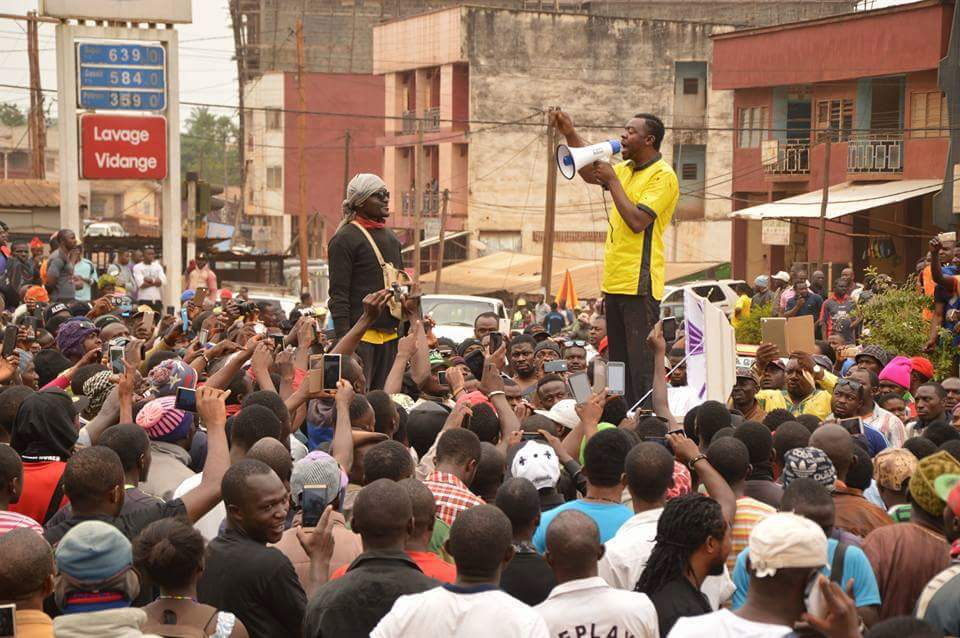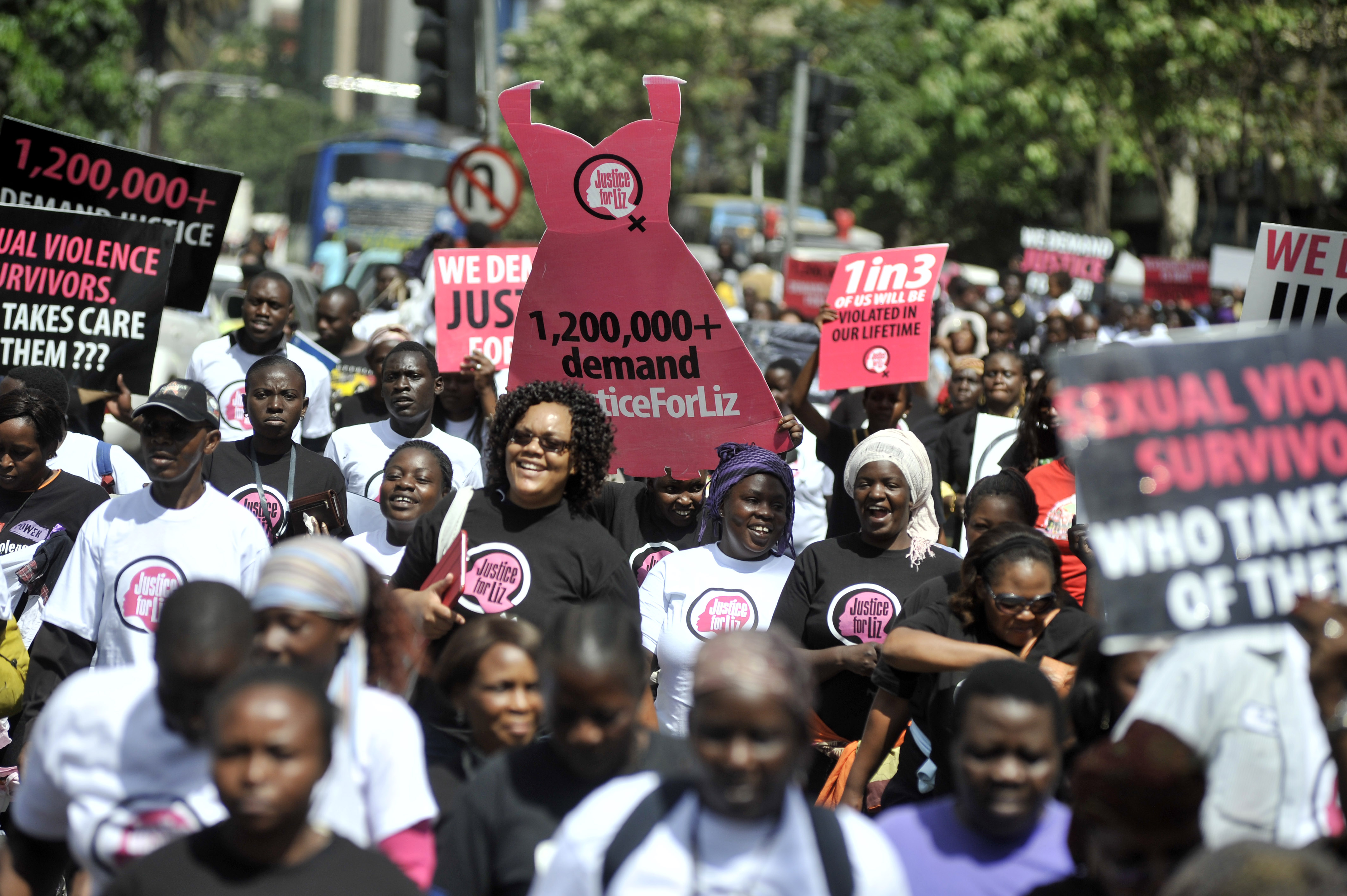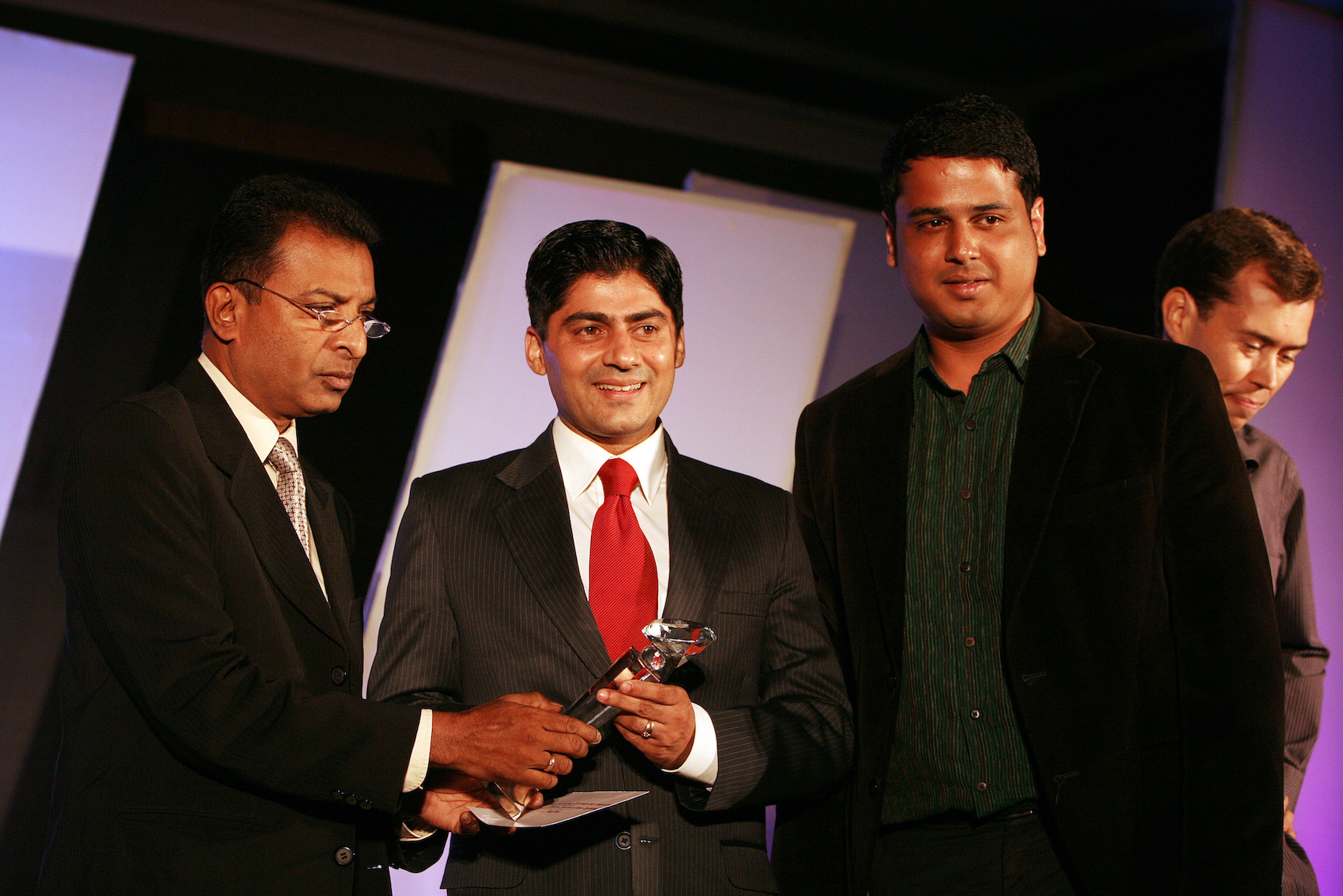Election season in Zimbabwe has long been shrouded in controversy, with intimidation of opposition activists and journalists, combined with disorganisation at the ballots creating a perfect storm for chaos. This year was no different
Zimbabwe’s elections have long attracted global media attention and the recent August 2023 elections were no different. As has become traditional, the run-up to the election was characterised by the banning of opposition political rallies, harassment of opposition supporters and violence against journalists, igniting extensive media interest as usual.
This year, Emma Zihonye, 24, a photojournalist, was keen to cover the elections for the first time, and says the experience was one of both fear and excitement, beginning with the campaign period right up to election day.
Growing up, Zihonye says she was hooked on the South African soap opera, Scandal, which frequently portrayed journalists. “When I was growing up, I told my family and friends that I wanted to be a journalist, but I was discouraged because people associated journalism with harassment, arrest or even being killed,” she says.
Despite all that, she enrolled in a journalism degree but has indeed come to appreciate the fear of harassment, bullying or even violence in Zimbabwe towards those journalists who are viewed as a threat if they focus too much on election fraud and violence.
It’s no wonder. In March 2022, a journalist was assaulted while covering a main opposition political rally, while four others were attacked in August that year by ruling party supporters. “At college, we produced a documentary about the harassment of journalists and it really scared me seeing some female journalists traumatised, and narrating how they were physically attacked,” Zihonye says. “At that time, I didn’t want to associate myself with political reporting, or photography, but I ended up doing it because a colleague encouraged me, and I wanted to break new ground.”
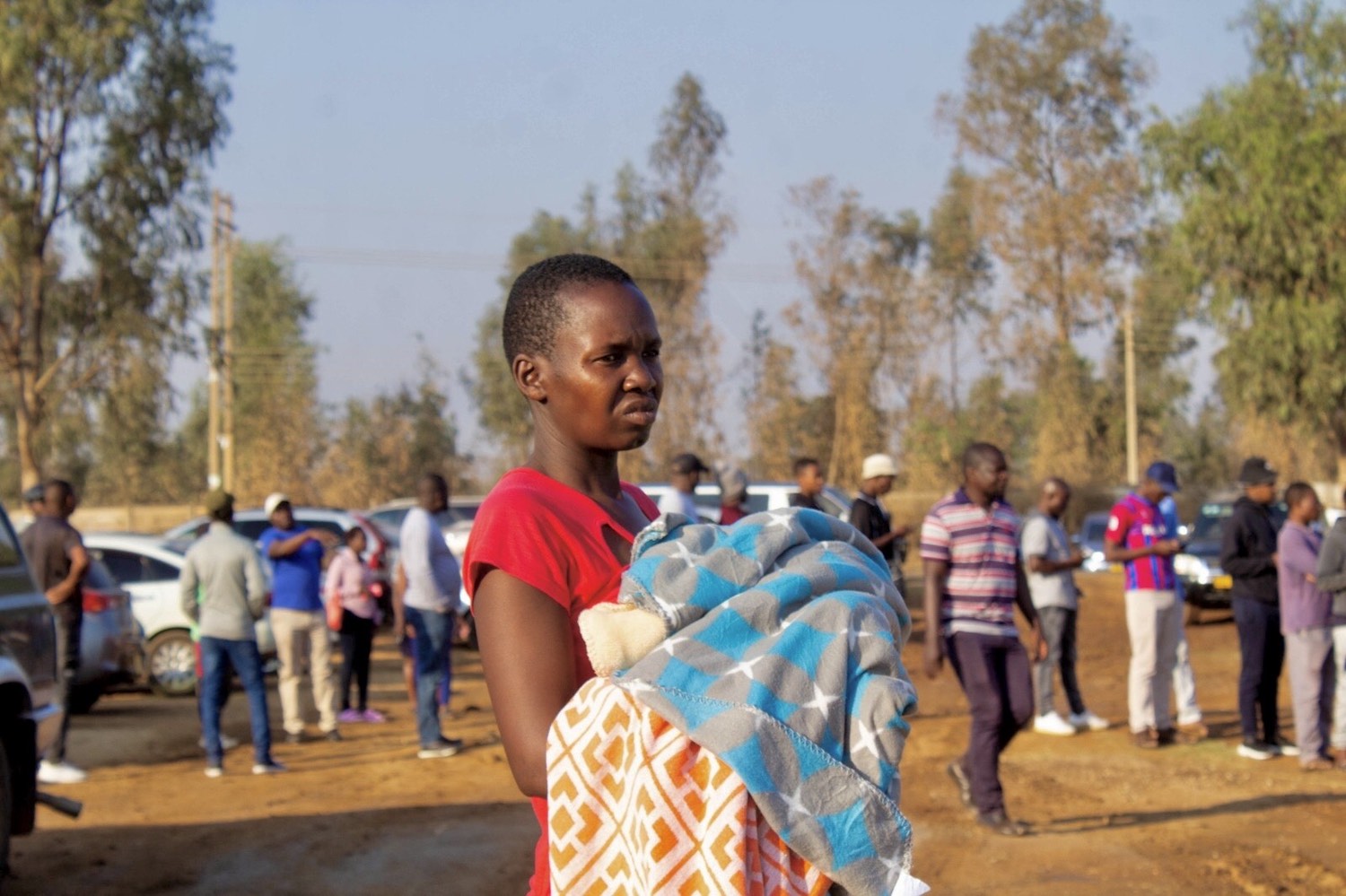
The ‘Spartan life’ experience
When media accreditation began for this year’s presidential election, many media outlets, including Voice of America, New York Times and Al Jazeera were all denied. Earlier this year, Al Jazeera aired an investigative series on the Gold Mafia, revealing how some political elites in the country have benefited from underworld lucrative mineral deals which caused controversy in Zimbabwe.
Soon after the President’s warning that election observers should not try to interfere in Zimbabwe’s electoral process, the deportations followed. Chris Moroleng, the Good Governance Africa’s CEO, was the first to be kicked out, followed by Professor Stephen Chan, both regarded as Harare critics.
“Good Governance Africa's CEO, @ChrisMaroleng, and team faced a shocking deportation from Harare today by the Zimbabwean government. Despite prior permission and support from Zimbabwean officials and SAPES Trust, their research mission was abruptly halted after just two days in the country,” the group stated on twitter.
David Khaemba, a Kenyan journalist at the Nation, wrote of a frustrating "Spartan life" experience, after his team’s camera equipment was seized by the tax authorities without any clear explanation, when they arrived several days before election day.
“We arrived at 11am local time, paid the bill at 12:29pm and were technically cleared. However, the team insisted that the equipment will not be released until check-in began at 2pm,” Khaemba wrote for the Nation. “That was when the problem started. Little did we know that we would spend the next 24 hours at the airport.”
The Nation news team’s ordeal continued for some time, with no help in sight. “The airport officials kept on saying they were looking for the equipment, and when we missed the flight, they came back demanding a surcharge for storage for the time we were stranded at the airport.”
That was not all, according to Khaemba. They were later made to shuffle from one office to the other, given contact numbers which did not work to retrieve their equipment, and then asked to apply for a licence to broadcast. In the end, the crew’s camera equipment was not released until they returned to Kenya.
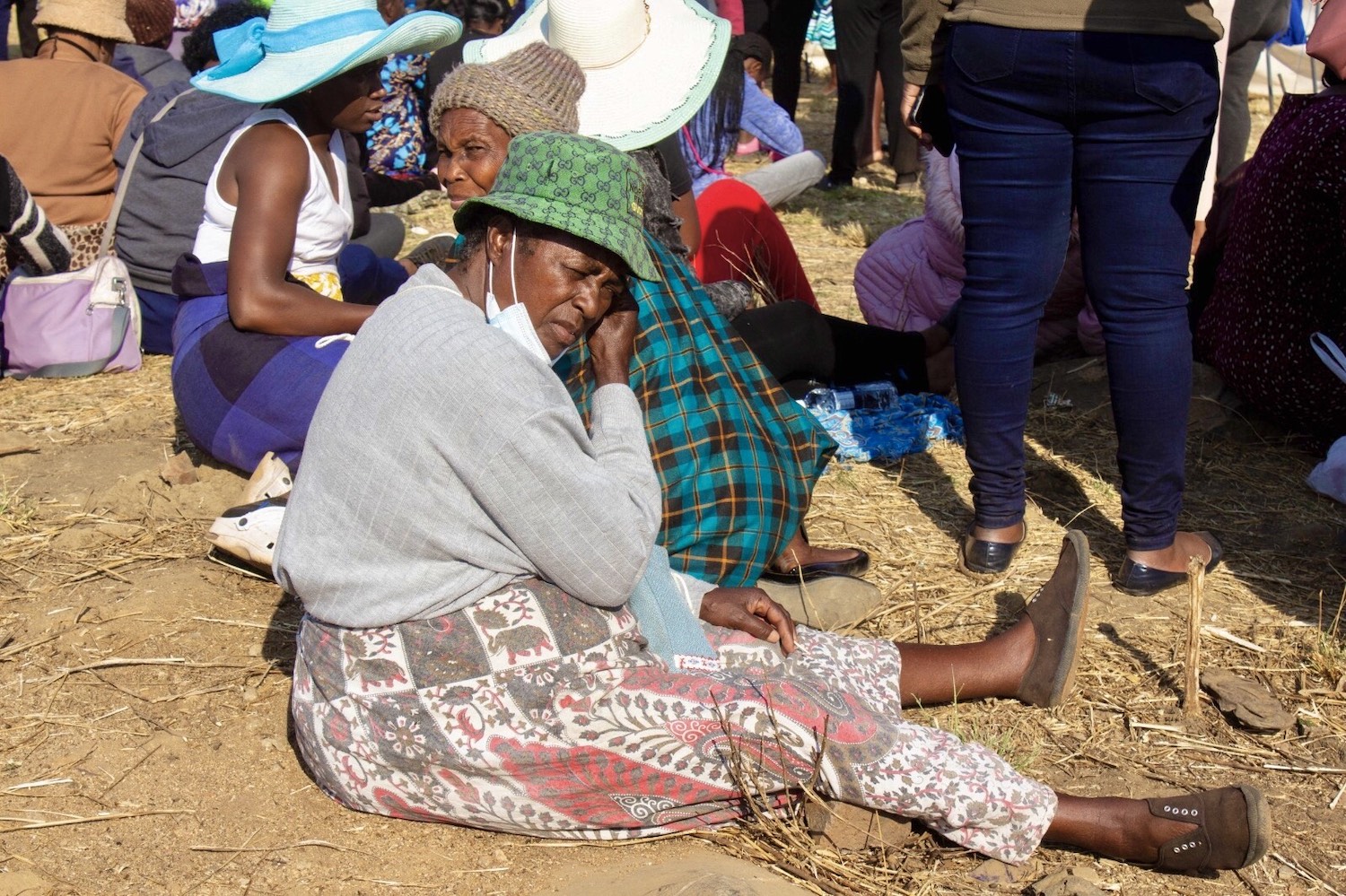
Scuffles in the polling booth
On election day, like many in urban areas, who were disenfranchised by the choreographed poll delays, Zihonye had planned to cast her vote first and later cover the elections, but all was in vain, due to ballot paper shortages.
“Election day was a nightmare for me. I woke up early and got to my polling station by 6am, hoping to vote and do my coverage, but then the ballot papers never came. It was now a dilemma for me: should I choose to cover the elections elsewhere, or should I just wait for the ballots?”
Stranded at the polling station, her journalist’s intuition kicked in and she began photographing frustrated voters who were waiting in vain for ballot papers to arrive. But what followed was a clear case of suppression, harassment, similar to the soap opera scenes she had watched while growing up.
“While I waited to vote, I started taking pictures, but then an election officer barred me from taking pictures inside the polling station, despite the accreditation which allowed us to do so, except inside the voting booth,” she says. “I was the only journalist at this polling station, so I think they took advantage of that, and also because of my age.”
Another shocking incident captured live by a South African broadcaster, Newzroom Afrika, showed an unidentified man forcibly grabbing the speaker’s speech in full view of the media, during an opposition CCC press briefing in Harare following the polls.
Apart from the negatives, the election coverage had some positives, and for the marginalised communities, again, another first for Zihonye. “The most interesting thing I saw at political rallies was the Sign Language representation at a Citizens Coalition for Change (CCC) rally in Marondera, on July 30, 2023. The party members with hearing impairment sat together as a family in front where they could clearly see their interpreter.”
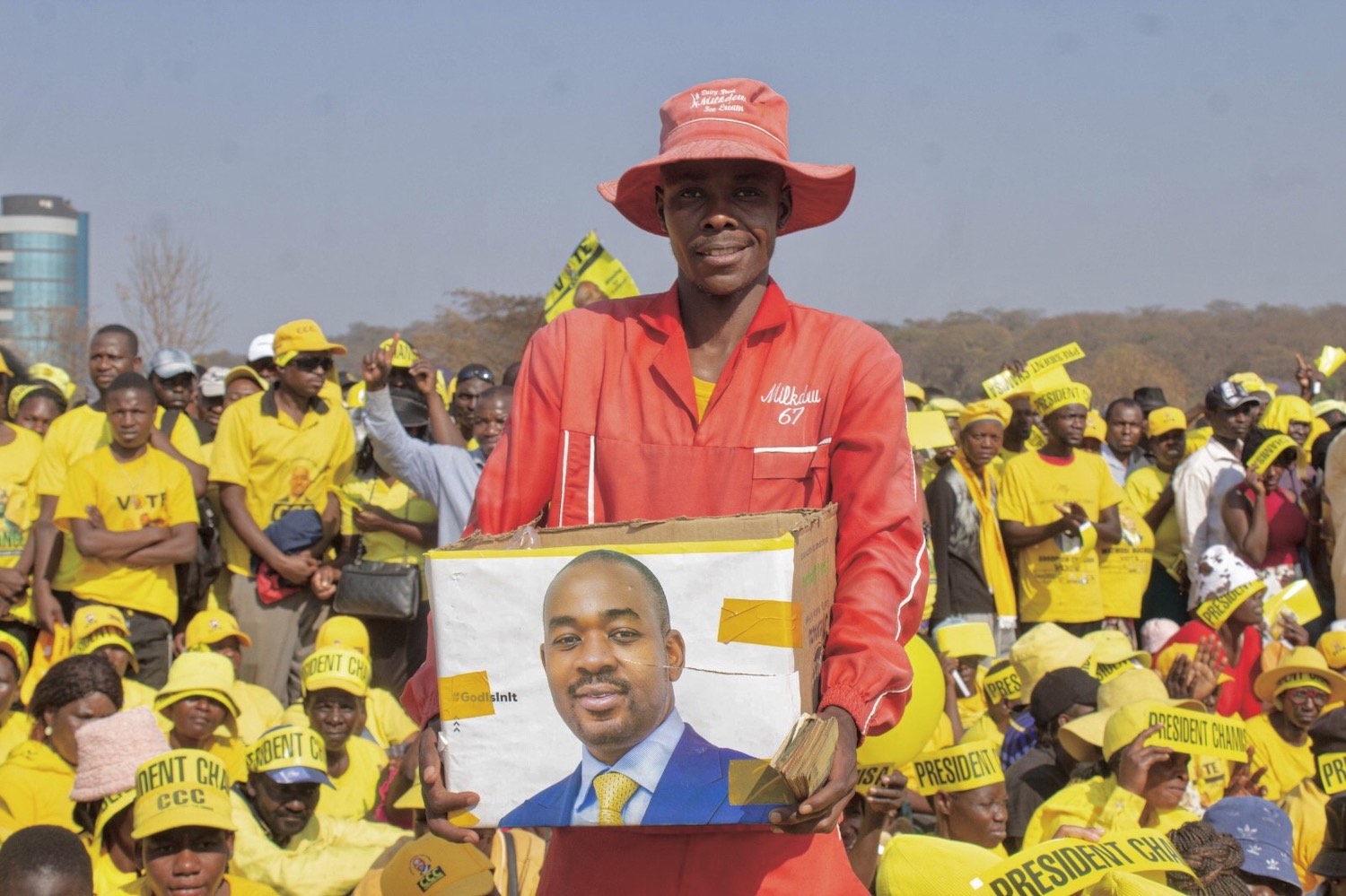
A long history of controversy
The love-hate relationship between Harare and the media simmers back to 2000, when Mugabe, cornered by the emerging Movement for Democratic Change (MDC) led by Morgan Tsvangirai resorted to the unleashing of violence against his opponents. He also passed restrictive media laws and closed down media spaces. After each election, the state accused the independent media of harbouring a “regime change agenda” and aiding the opposition.
Eight years later, in 2008, Mugabe retained power at the backdrop of the most controversial election in history, after which the results were withheld for more than a month. Later, a stalemate was proclaimed, leading to a runoff which Mugabe contested alone and was immediately inaugurated.
Interestingly, towards his end, Mugabe, a robust aggressor against the independent media, summoned journalists to listen to him speak about his ousting by the military. At this point, a pale shadow of himself, sunk in a chair, he spoke incoherently about the shock of his removal from office after three decades in power.
This year’s election was almost a replica of previous disputed elections, dogged by allegations of poll rigging and manipulation. First, the opposition was denied access to the voters roll, laws were crafted to suppress opponents, violence was unleashed, campaign rallies were barred, and voter buying and intimidation was rampant.
Just before the August 2023 plebiscite, Saviour Kasukuwere, a former minister and sacked ruling party functionary, now exiled in South Africa, was controversially stopped by the courts from contesting, a familiar form of lawfare used to neutralise opponents in favour of the ruling party.
After the Supreme Court judgment, he tweeted: “Disappointed, and we are now considering our next steps and will keep the nation informed. God bless.”
He later tweeted again: “Desperation on steroids! Why is the regime sending ZACC to my family home. What valuation are you carrying out? @edmnangagwa Is it criminal to contest you?” (ZACC stands for the Zimbabwe Anti Corruption Commission).
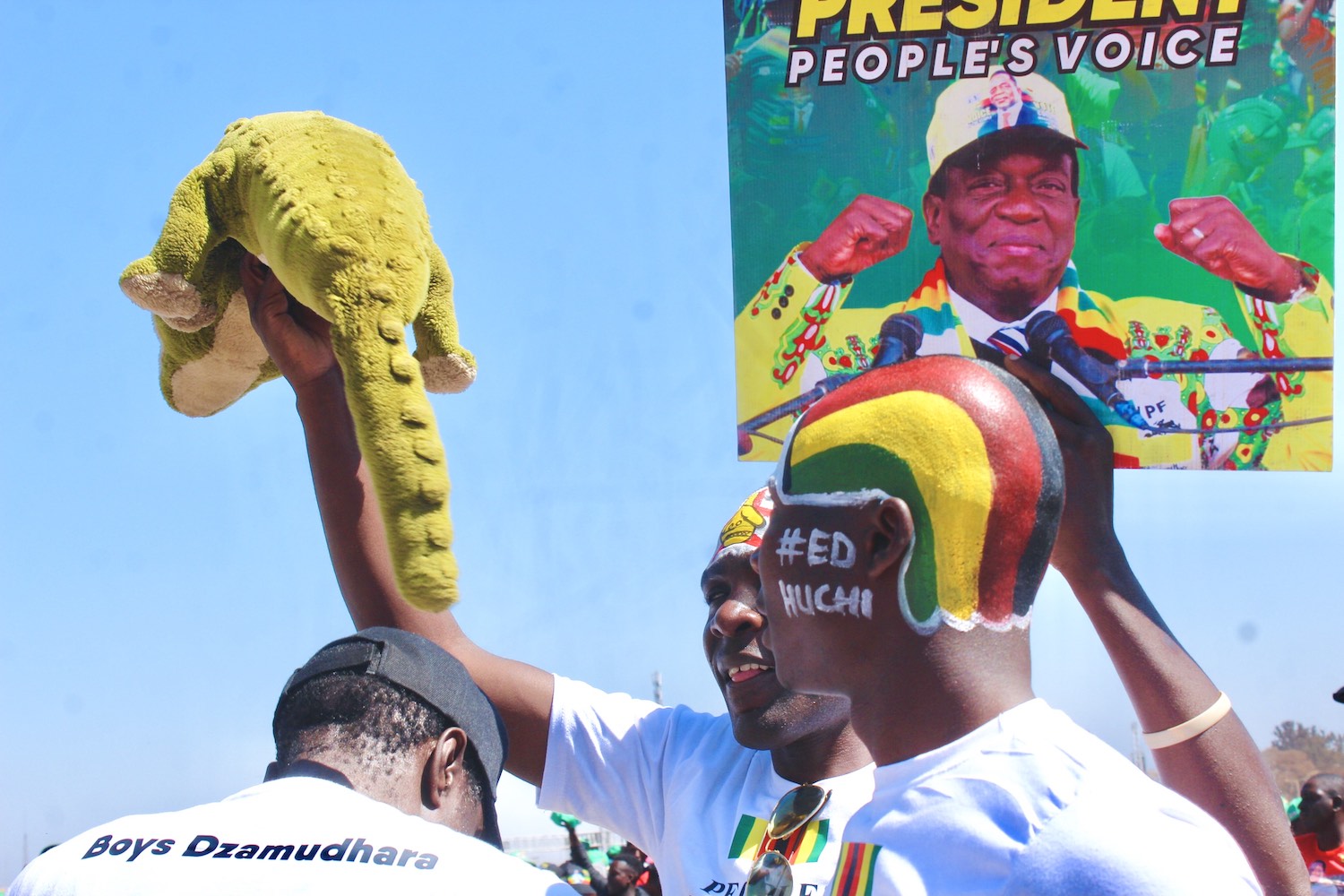
‘Puppet of the West!’
Immediately after the controversial 2008 elections, Thabo Mbeki stepped in to mediate between Mugabe and the opposition MDC.
Unlike the previous elections, this time the South African Development Community (SADC) observer report was scathing about the handling of elections by the Zimbabwe Electoral Commission (ZEC), abandoning its historical comradely endorsement of the polls. In return, the ruling ZANU-PF called Dr Nevers Mumba of the SADC Electoral Observation Mission (SEOM) “a hired gun” and “puppet of the west”. Dr Mumba’s preliminary statement, citing several irregularities, was abruptly cut off midway as it was being aired on the state Zimbabwe Broadcasting Corporation (ZBC).
Zambian president, Hakainde Hichilema, the Chairperson of the SADC Organ on Politics, Defence and Security Cooperation, who had dispatched Dr Mumba to Zimbabwe, was also accused of being a “front of imperialism and the West”, as well as a close ally to the main opposition leader Nelson Chamisa.
“Mnangagwa conducted a coup d’état and removed Mugabe, they are still not satisfied. Till they get their puppet in power they will never be satisfied,” South Africa’s ruling ANC Secretary General Fikile Mbalula told his party supporters in June. “Mnangagwa brought some reforms but they (America) did not want those reforms because they want a man called (Nelson) Chamisa. They want him to be the leader of a new Zimbabwe.”
Amid the harassment and intimidation which persists today, young photojournalist Emma Zihonye remains resolute, and has high hopes for her chosen profession. “I urge journalists covering elections to prioritise accuracy, objectivity, and fairness in your reporting,” she says. “Remain vigilant against bias and strive to uphold journalistic ethics. Journalism is crucial in informing the public and promoting transparency in the electoral process.”
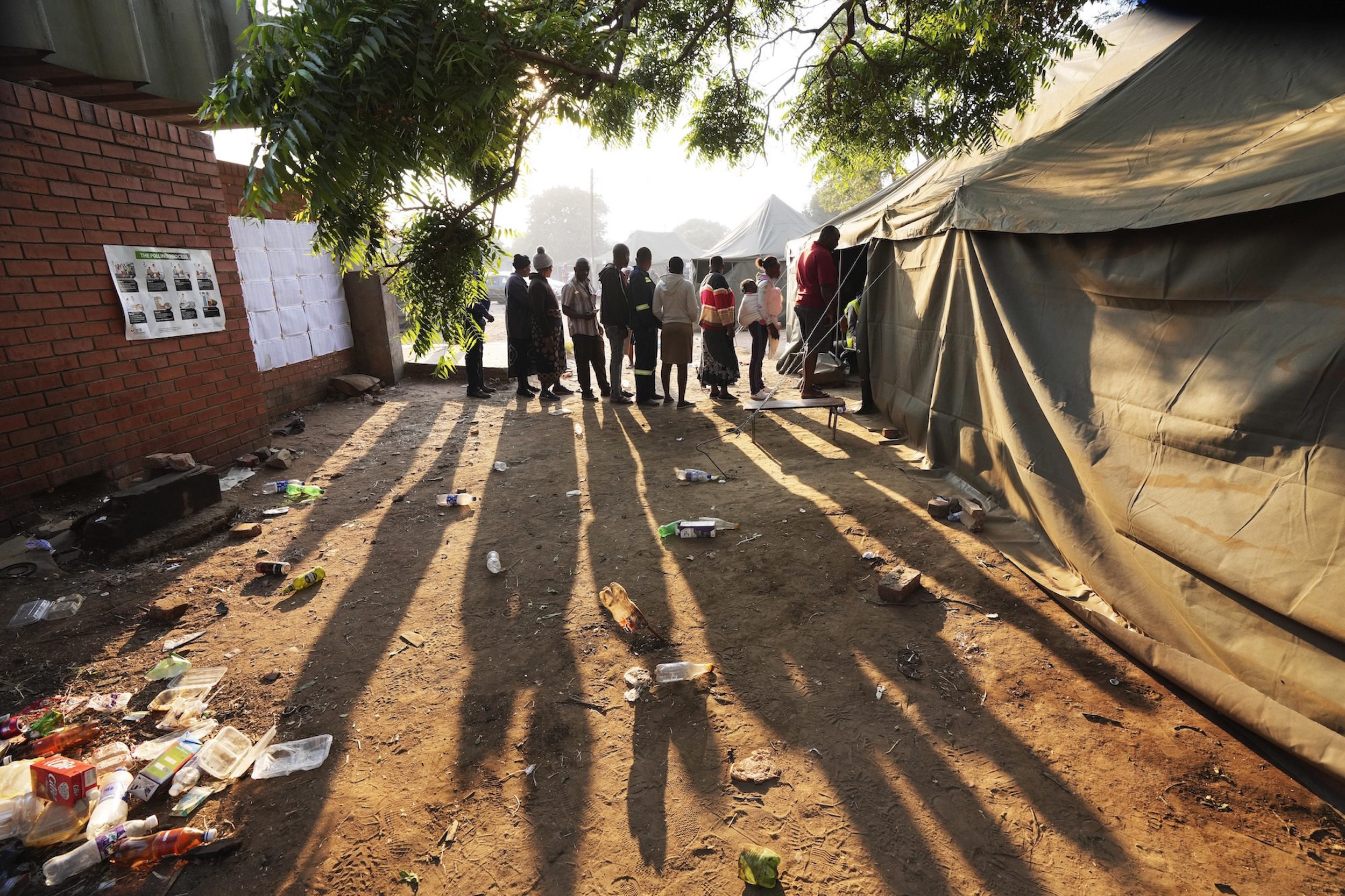





























![A demonstration against Israel's war on Gaza on Paulista Avenue in São Paulo on November 4, 2023, draws attention to the deaths of children while the media focuses on the war against terrorists. [Photo: Lina Bakr]](/sites/default/files/ajr/2024/Picture1.png)

